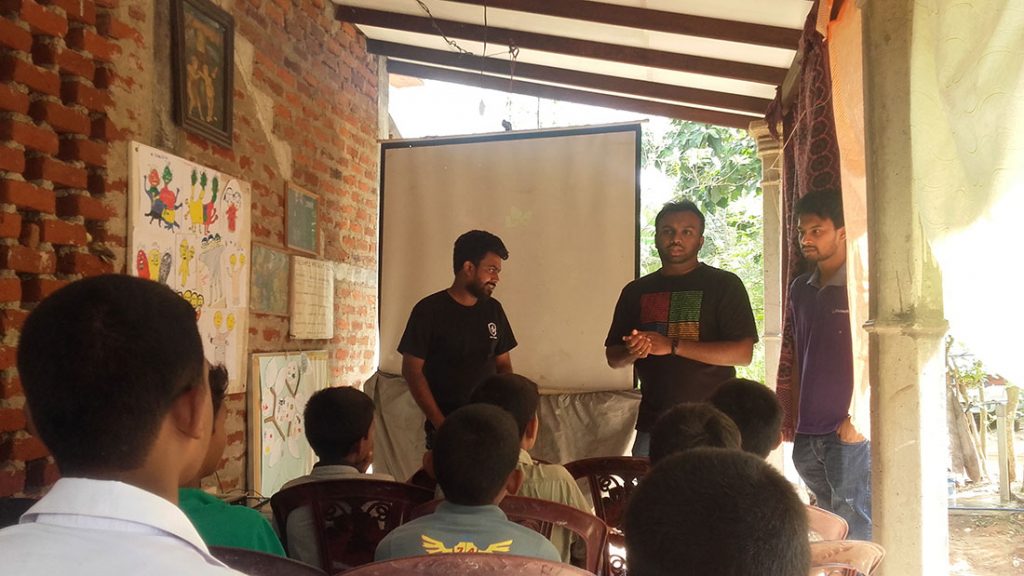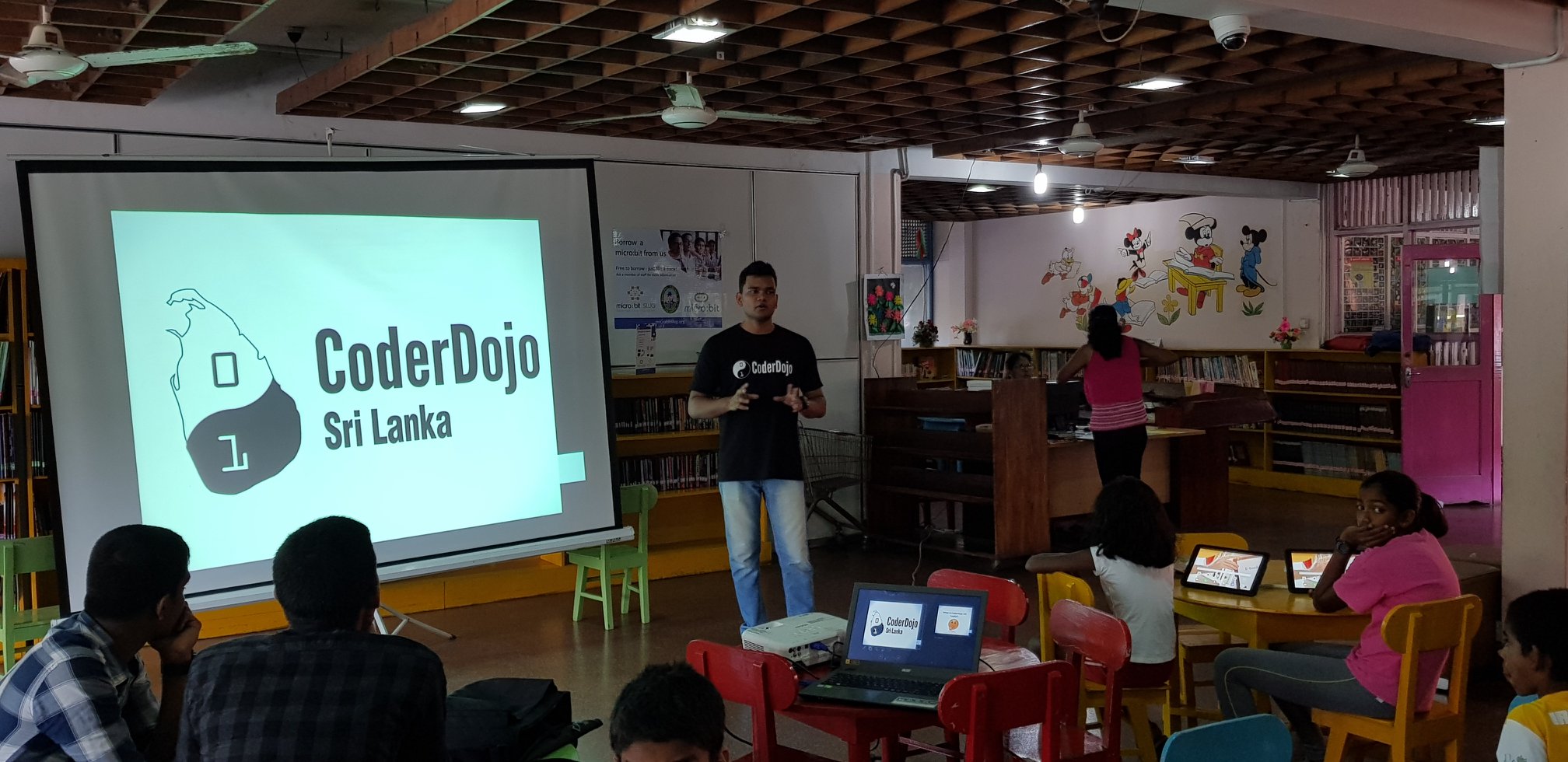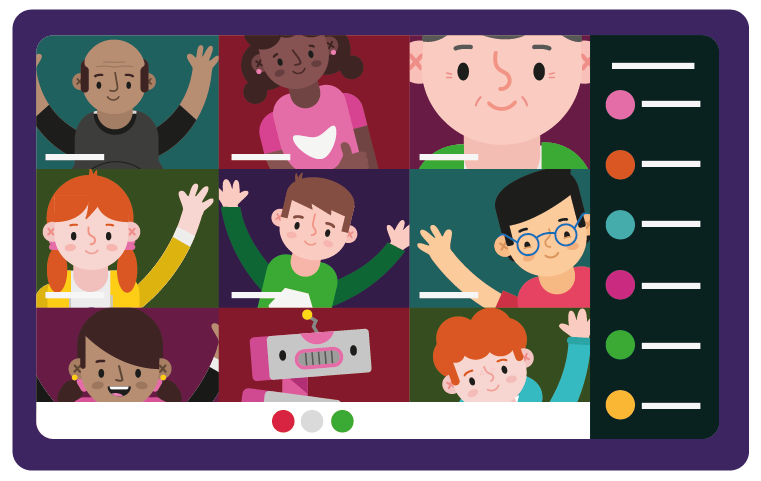
9th February 2022
How the STEMUp Educational Foundation embraced adversity to create success
In January, our Global Community Coordinator, Izzy, caught up with Prabhath Mannapperuma, one of STEMUp’s directors. Prabhath shared how Dojos in Sri Lanka are dealing with the challenges of the last two years, and what they have planned for 2022.
STEMUp Educational Foundation was founded in 2016 by four friends who wanted to improve children’s access to STEM across Sri Lanka. Now, the foundation has over 1,200 active members (all volunteers), and works with numerous organisations across the world to help support their mission. After joining forces with the Raspberry Pi Foundation, they have recently become the first organisation to move from being a growth partner to a national partner.*
 Prabhath Mannapperuma, one of STEMUp’s directors
Prabhath Mannapperuma, one of STEMUp’s directors
Managed vs. unmanaged Dojos
Prahbhath explained that they have two forms of Dojos running through STEMUp. Managed Dojos are managed and staffed directly by STEMUp volunteers. Unmanaged Dojos are IT centres brought onboard by STEMUp, whose staff are trained to teach young learners. This allows the foundation to reach a much wider range of children across Sri Lanka, and lets volunteers focus on their own clubs.
 Managed Dojos are managed and staffed directly by STEMUp volunteers
Managed Dojos are managed and staffed directly by STEMUp volunteers
Finding ways to continue
Unfortunately, this arrangement was turned upside down by the pandemic. “Some centres had to close down fully,” Prabhath told me. But it’s not all bad news: “We managed to continue our activities, our engagements, through online media. We were conducting classes and asking the centres to share those links with students, and we also did a social media campaign.”
An important part of continuing CoderDojo activities was making sure learners could access online resources. “Those centres and even rural students were not used to digital technologies — how to join a Microsoft Teams call, a Zoom call.” STEMUp helped train centres and get access to the platforms, allowing online activities to carry on.
 STEMUp supported young people to continue learning during the pandemic through online activities
STEMUp supported young people to continue learning during the pandemic through online activities
What’s next?
Now, STEMUp is thinking about what’s next. They have big ambitions for the coming year, including increasing the number of Dojos. They also want to create new partnerships within Sri Lanka, and are hoping to work more closely with the Sri Lankan government. Prabhath shared, “This national partnership will definitely help us. It’s a unique position that the CoderDojo Foundation and the Raspberry Pi Foundation have given us. We would like to do more and empower more kids. So that’s our intention.”
Find out more about STEMUp here:
Like so many Dojos around the world, the STEMUp clubs had to adapt how they operated because of the pandemic. Find more information below.
Explore the different ways you can run your Dojo
*In the Raspberry Pi Foundation, growth partners are those that start and support a collection of clubs in their own network. National partners take on the responsibility of supporting all clubs in their country, building a nationwide CoderDojo or Code Club community.